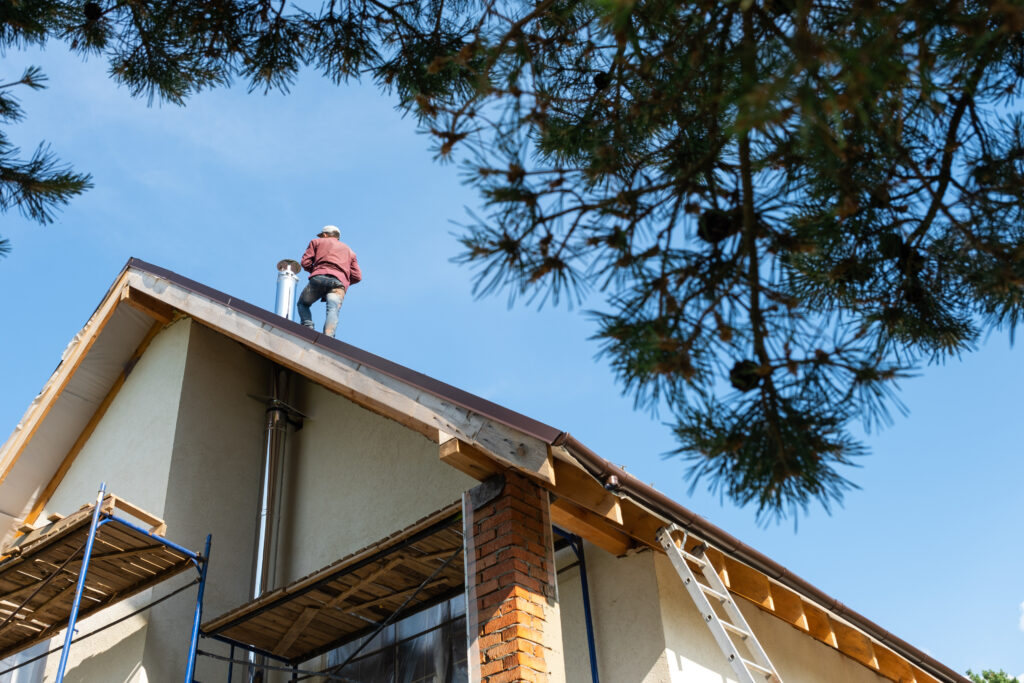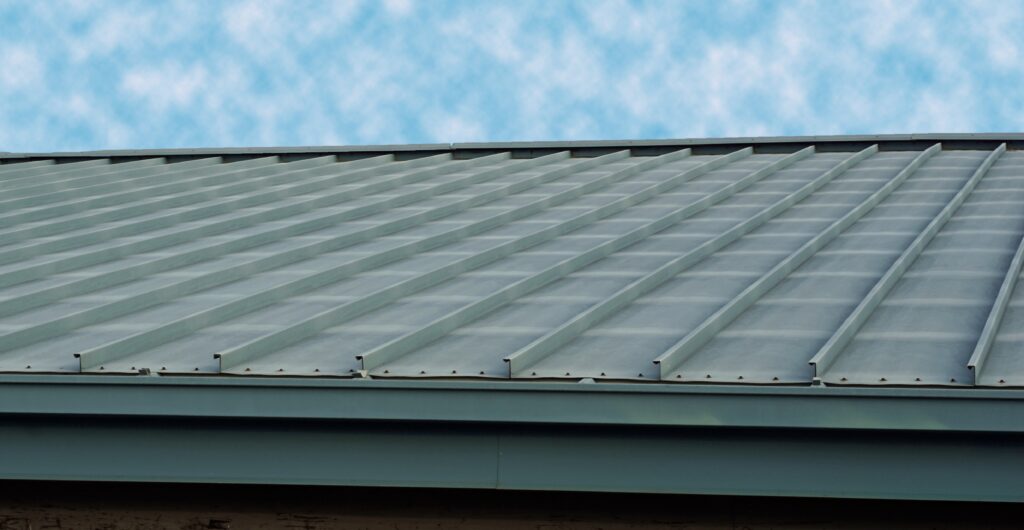What Every Homeowner Should Know Before Hiring a Roofer
Selecting a contractor to replace your roof is one of the most consequential decisions you will make as a homeowner. It is a major financial investment that directly impacts the safety, integrity, and value of your property. Your roof is the primary shield against the relentless Florida elements, from the baking summer sun to the torrential rains of a tropical storm. Entrusting its installation to a contractor is an act of faith, and choosing the right one is paramount. The roofing industry, particularly in a high-demand area like ours, is filled with companies of vastly different skill levels, ethics, and legitimacy. Navigating this landscape can feel overwhelming, but it does not have to be.
The key to a successful and stress-free roofing project lies in knowing how to properly vet a potential contractor before you sign any contract. It is about transforming yourself from a passive consumer into an informed and empowered hiring manager. By understanding the critical qualifications, documentation, and business practices that separate the true professionals from the rest, you can protect yourself from subpar workmanship, financial scams, and the immense legal risks associated with hiring an unqualified individual. This guide is designed to walk you through the essential steps every Clermont homeowner should take to ensure they partner with a reputable, skilled, and trustworthy roofing company that will deliver a result that protects their home for decades to come.
Verifying Licensing and Insurance: The Non-Negotiables
Before you discuss shingle colors, project timelines, or even price, your very first step in evaluating any roofing contractor must be to verify their licensing and insurance. This is the absolute, non-negotiable foundation upon which everything else is built. In the state of Florida, a legitimate roofing company is not just encouraged to have these credentials; they are required by law. Skipping this step or taking a contractor’s word for it is a gamble you cannot afford to take, as the consequences can be financially devastating.
The state of Florida has stringent requirements for roofing contractors to protect consumers. A professional roofer must hold a state-certified contractor’s license, which will be designated as either a Certified Roofing Contractor (CCC) or a Certified Building Contractor (CBC). You should ask for this license number upfront and then independently verify its status. The Florida Department of Business and Professional Regulation (DBPR) has a public online portal where you can enter the license number to confirm that it is active, in good standing, and belongs to the company you are dealing with. An expired, suspended, or non-existent license is an immediate disqualification.
Equally critical is the proof of proper insurance. This comes in two distinct and equally important forms. The first is General Liability insurance. This policy protects your property from accidental damage caused by the contractor or their team during the project. For example, if a ladder falls and breaks a window or if materials are dropped on your landscaping, their general liability policy would cover the cost of repairs. The second, and arguably more important for your personal protection, is Workers’ Compensation insurance. This policy covers the medical expenses and lost wages of any employee who is injured while working on your property. If a contractor does not carry this coverage and one of their workers gets hurt, you, the homeowner, could be held legally liable for their medical bills in a lawsuit. Always ask for a current Certificate of Insurance that names you as the certificate holder, and do not hesitate to call the insurance agency listed on the certificate to confirm the policy is active.
Experience and Local Reputation Matter
Once you have confirmed that a contractor has the necessary legal credentials to operate, the next phase of your evaluation should focus on their experience and standing within the local community. While every business has to start somewhere, a company with a long and stable history of serving the Clermont area provides a level of assurance that a new or out-of-town operation cannot. Longevity in the roofing business is a strong indicator of financial stability, consistent quality, and a track record of satisfied customers who have sustained the company through referrals and repeat business over many years.
Beyond just the number of years in business, you need a contractor with specific, deep-rooted local experience. A roofer from another state, or even another part of Florida, may not have the intimate knowledge required to properly roof a home in our specific region. A true local expert understands the unique challenges of the Central Florida climate, is familiar with the permitting process and inspection requirements for Lake County, and knows which materials and installation techniques perform best against our combination of intense UV exposure, high humidity, and hurricane-force winds. They have established relationships with local suppliers, which can ensure a smoother project timeline, and their reputation among your neighbors is a testament to their commitment to the community.
You can learn a great deal about a company’s reputation through diligent research. Online review platforms like Google are a good starting point, but learn to read between the lines. Look for detailed reviews that describe the entire process, not just a one-line comment. Observe how the company responds to both positive and negative feedback; a professional response to criticism is often a sign of a company that values customer service.
Do not be afraid to ask for local references. A confident, reputable contractor should be more than willing to provide you with the addresses of recent projects they have completed in or near your neighborhood. Taking a drive to see their work firsthand allows you to assess the quality of their craftsmanship. Look for clean, straight lines, proper alignment of shingles, and attention to detail around vents and chimneys. This real-world evidence is often more valuable than any sales pitch.
Understanding the Estimate and Contract
After narrowing down your list to a few properly licensed, insured, and reputable contractors, the next step is to obtain detailed written estimates. It is wise to get at least three bids, but it is critical to understand that your goal is not simply to find the lowest price. In roofing, the cheapest bid is very rarely the best value. A suspiciously low estimate is a major red flag, often indicating that the contractor is cutting corners by using subpar materials, hiring uninsured and unskilled labor, or is simply desperate for work. A quality roof is a complex system, and the price should reflect the use of quality components and skilled installation.
A professional estimate is far more than just a number on a piece of paper. It should be a detailed, itemized document that clearly outlines the entire scope of the project. It must specify the exact brand, type, and color of shingles to be used, as well as the type of underlayment, drip edge, flashing, and ventilation products. The document should clearly state the work to be performed, including the tear-off of the old roof, wood decking replacement if necessary, installation of all new components, and cleanup. It should also include a clear payment schedule and an estimated timeline for the project’s start and completion.
Once you select a contractor, all these details must be transferred into a formal, legally binding contract. Never proceed with a roofing project based on a verbal agreement or a simple handshake. The written contract is your ultimate protection. Read it carefully before signing and ensure it matches everything you discussed and agreed upon. Be wary of any contractor who demands a very large upfront payment or the full amount before work begins. A reasonable deposit is standard practice, but a significant portion of the payment should be withheld until the project is complete and you are fully satisfied with the work and the final inspection has passed. The contract should also clearly detail the warranties provided, which should include both the manufacturer’s warranty on the materials and, just as importantly, the contractor’s own warranty on the quality of their workmanship.
Florida-Specific Considerations: Materials and Building Codes
Roofing in Florida is fundamentally different from roofing in most other parts of the country, and any contractor you consider must demonstrate a thorough understanding of these unique requirements. Our state’s building codes are some of the strictest in the nation for a reason: to protect homes from the incredible forces of hurricanes. Your contractor must be fluent in these codes and use materials specifically designed to withstand our severe weather.
One of the most critical aspects is the wind rating of the materials. Ask potential contractors about the wind speed warranty of the shingles they propose using. In our region, architectural shingles should be rated to withstand winds of at least 130 mph. However, the materials are only half the equation. To achieve that wind rating, the shingles must be installed according to a very specific nailing pattern mandated by the Florida Building Code. A knowledgeable contractor will be able to explain this process, typically involving six nails per shingle in specific locations, rather than the standard four used in other regions.
The underlayment, the layer between your roof deck and your shingles, is another area where Florida standards are higher. A standard felt paper underlayment is often inadequate for our climate. A high-quality synthetic underlayment offers superior water resistance and durability. Even better is a self-adhered membrane, often called a “peel-and-stick” underlayment. This type of product seals directly to the roof deck, creating a continuous waterproof barrier that can protect your home from water intrusion even if some shingles are blown off during a hurricane.
Finally, a reputable contractor will always insist on pulling a permit from your local building department for a roof replacement. The permitting and inspection process is a crucial form of consumer protection. It ensures that the work is being performed in compliance with all current building codes and will be reviewed by a neutral third-party inspector. Be extremely cautious of any roofer who suggests skipping the permit to save time or money. Unpermitted work can create major problems when you try to sell your home and may even jeopardize your homeowner’s insurance coverage.
The process of hiring a roofing contractor is, in essence, an interview for one of the most important jobs related to your home’s well-being. It requires diligence, research, and a clear understanding of what separates a true professional from the alternative. By starting with the non-negotiable step of verifying state licensing and full insurance coverage, you establish a baseline of legitimacy. From there, you can evaluate a company’s local experience, check their community reputation, and carefully scrutinize their estimates and contracts to ensure complete transparency and professionalism. Finally, confirming their expertise in Florida’s stringent building codes and hurricane-rated materials will give you confidence in their ability to protect your home specifically from our unique weather challenges.
Take your time in this process. Do not allow yourself to be rushed by high-pressure sales tactics. A truly professional contractor will be patient, answer all of your questions thoroughly, and provide you with all the documentation you request. Trust your instincts; if something feels off, it probably is. Your goal is to find a long-term partner who will not only install your new roof correctly but will also be there to stand behind their work for years to come.
At Clermont Roofing, we welcome this level of scrutiny because we have built our business on a foundation of transparency, expertise, and a commitment to our local community. We are fully licensed and insured, with deep roots in the Clermont area and a comprehensive understanding of what it takes to build a roof that lasts in Florida. We invite you to contact us for a no-obligation consultation, where we can demonstrate our professionalism and provide you with the information you need to make the best possible decision for your home.




